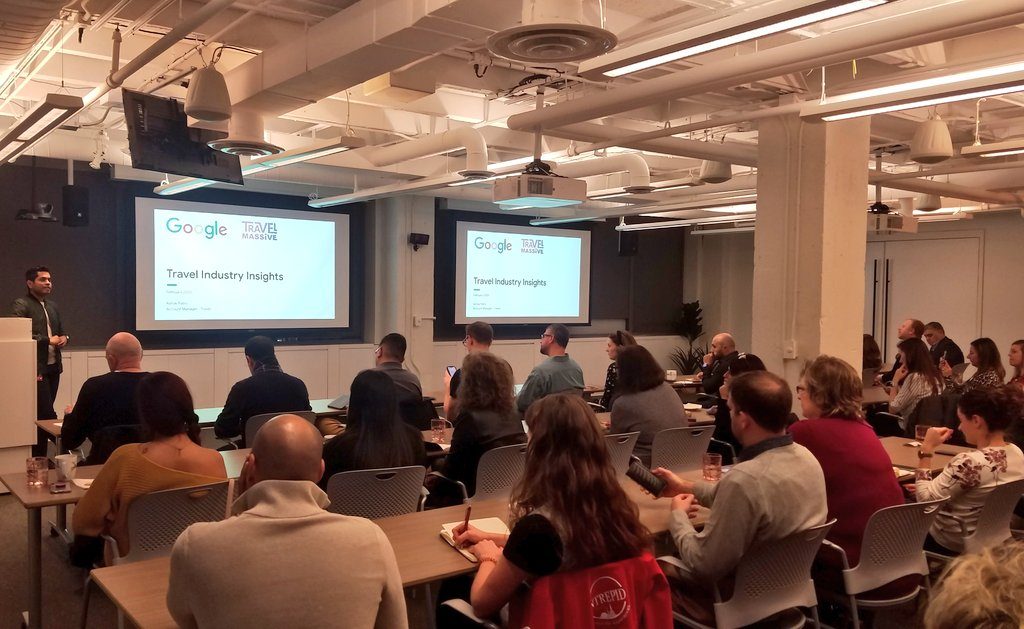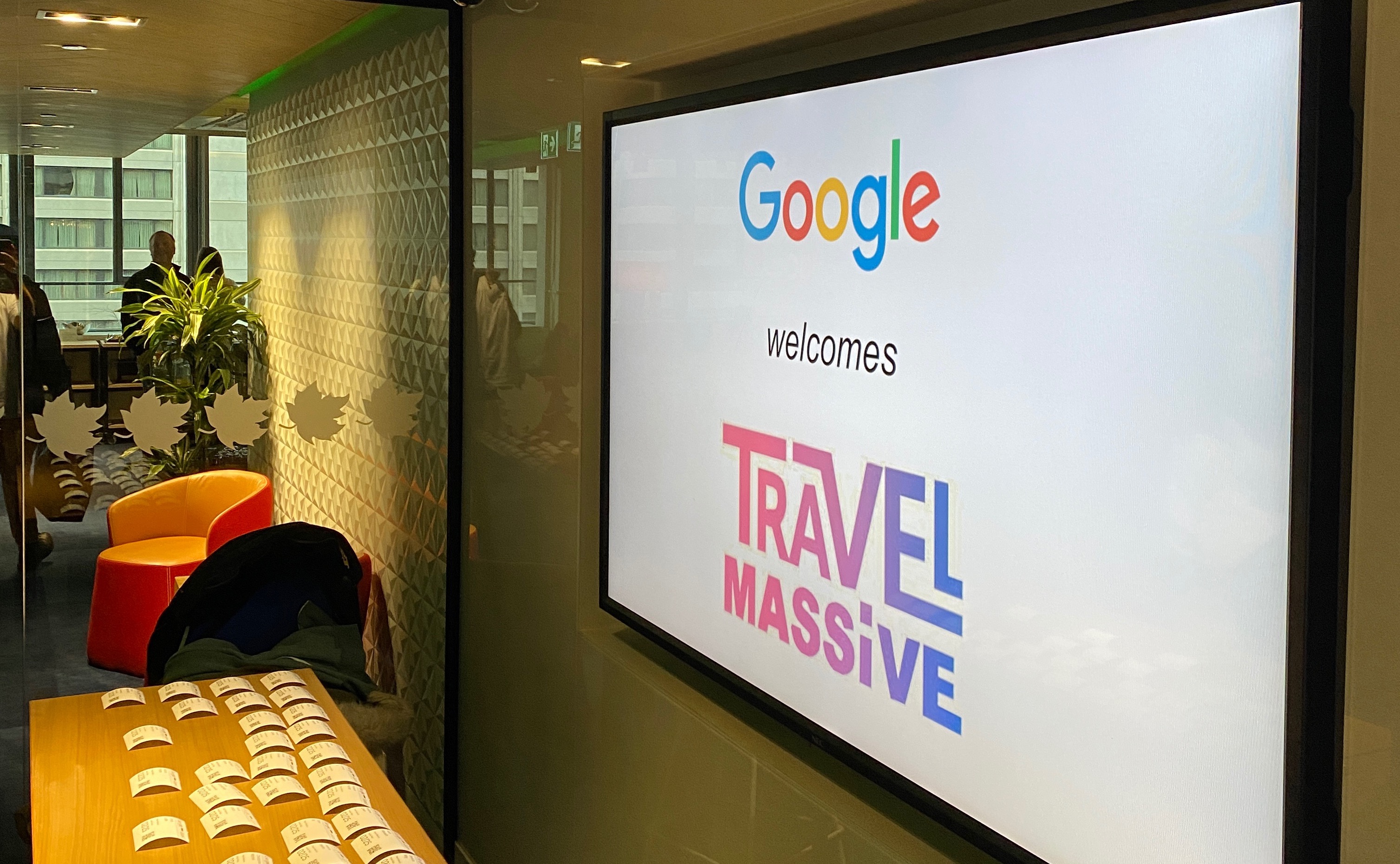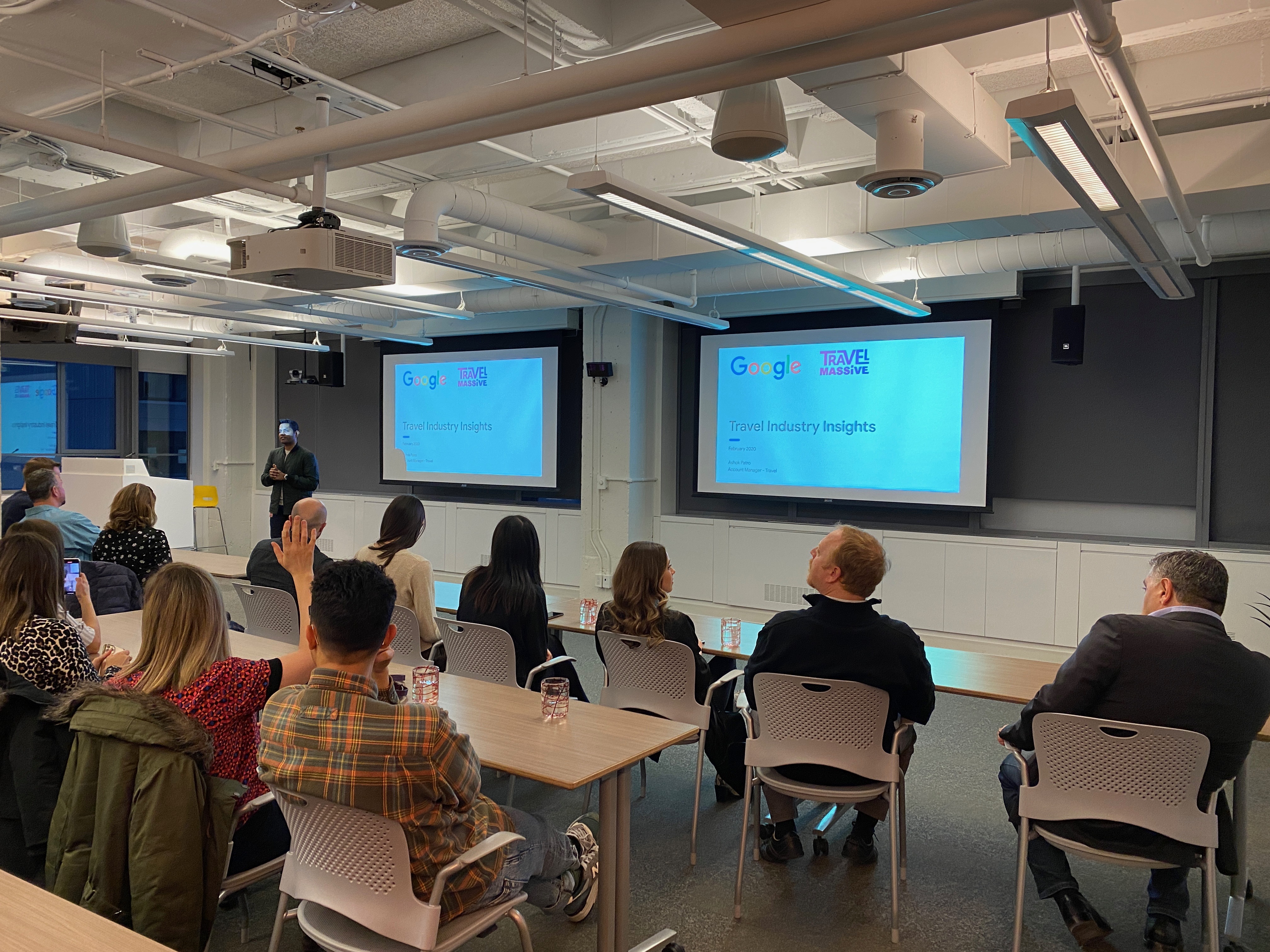Toronto: Marketing for the Modern Traveler at Google
Toronto held their February event at the Google offices to tap into their wealth of knowledge about travel industry insights and trends.
 This recap was written by Will Tang, Toronto chapter leader and full-time travel blogger at Going Awesome Places, where he writes and creates video on outdoor adventures and experiential travel.
This recap was written by Will Tang, Toronto chapter leader and full-time travel blogger at Going Awesome Places, where he writes and creates video on outdoor adventures and experiential travel.
Marketing for the modern traveller
Ashok Patro, Account Manager for the Google travel vertical gave an insightful talk at the Google space in Toronto about what the modern marketing approach to today’s traveller looks like.
The talk was geared towards those in the tourism industry selling travel product but delving deeper into the psychology of the purchase path of travellers gives insight that everyone in our community can leverage.
Here are the main takeaways:
There are infinite paths to purchase when it comes to travel – it is not a linear funnel as we once thought it was. Google’s approach to travellers involves a 3D model, comprised of Decode, De-Average, and Delight:
Decode – Every traveller’s needs are different and data can be used to reveal what those are. In fact, unmet needs are twice as likely to deter a booking than price . Google found that 57% of travelers make their decision based on the itinerary, destination, companion, etc. while only 24% decide based on price.
So it is vital to understand the travelers’ needs by looking at the whole travel purchase journey as opposed to just the final decision. To do so is lucrative – Google found that customers are willing to pay more if specific needs are met, specifically hotels (44% more), flights (10% more) and cruises (20% more).
De-Average – Marketing to “the average” consumer can lead to average results. We often assume consumers only act one way but this is not true. While there are industry averages, there is no “average” travel consumer. Every traveller’s booking journey is different, so you should try to know each consumer individually, and segment, and target all types of their behaviours.
A de-averaged marketing strategy can double your conversion rate. 3 in 4 travellers want customization. Consider segmenting your newsletter subscribers and personalizing your ads. Cater to your traveler’s needs at every stage.
Delight – Go beyond last-click attribution. Make sure every experience and impression is seamless, interesting, relevant, and builds trust. 80% of travel consumers use mobile phones to plan or book a portion of their trip. A delightful mobile experience leads to a 16% price premium on mobile bookings, so be sure to give users the best possible mobile experience.
How to make consumers book trips faster?
One of the biggest takeaways was learning the best way to get travellers to book. The answer, according to Google, is video.

Video ad exposure has shown to lead to faster decision making. Without video, it takes the average consumer 35 days to complete their travel planning journey but with a travel video ad, it’s 23% shorter at 27 days. Consumers book faster when they’re inspired through video.
How loyal is the modern traveler?
It is no secret loyalty is a rare good in the travel industry. Information that Ashok shared confirmed this – 44% of travellers book with another brand than the one they claim most loyal to . Google also found that 66% of travellers book on a different site from the one they first click on .
As an interesting piece of information, first-time bookings were 22% more likely to have been inspired by media while 62% overall already have a destination in mind, and searches for experiences and activities signal especially strong intent.
Additional resources
Ashok also shared some useful resources for travel industry professionals who sell or promote travel:
- 5 Tips for Finding the Best Hotels in 2020
- Travel Insights: How people plan a trip from beginning to end
- Google Trends – a great place to understand what people are searching on Google
- TestMySite – A slow mobile site limits your business. Test your mobile speed and see how it compares to your top competitors
Thanks, Will for summarizing the key findings from the workshop with us!
Follow Will on Travel Massive and join Toronto Travel Massive to find out about future events.
👋 This article is archived. Take a look at our new website.

